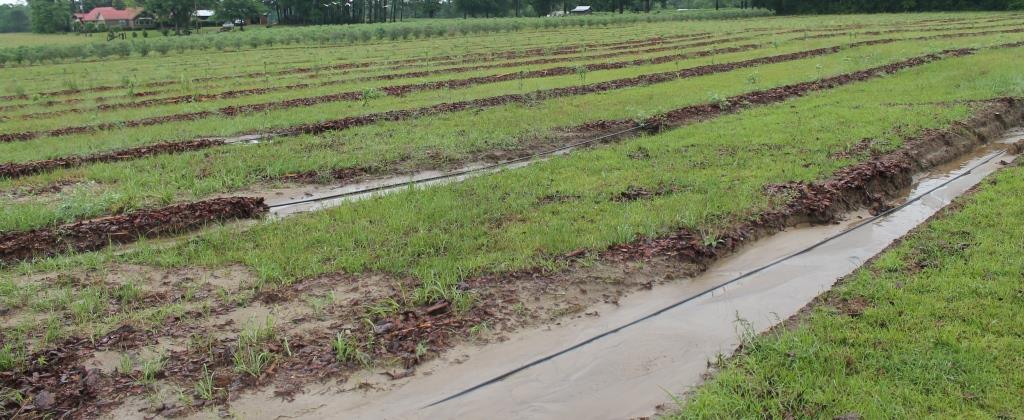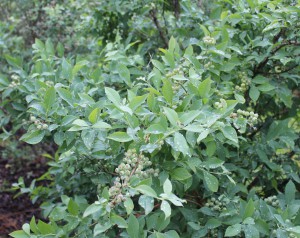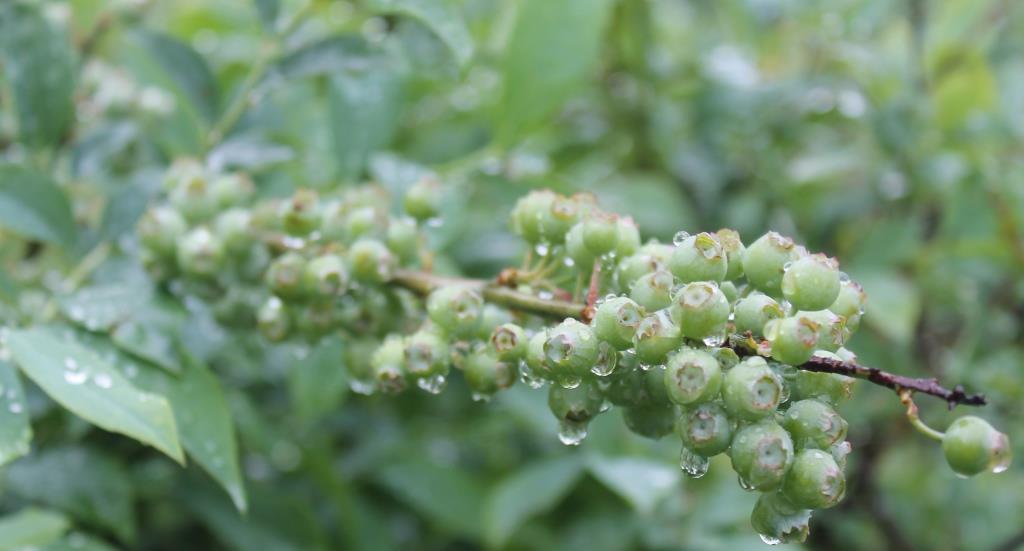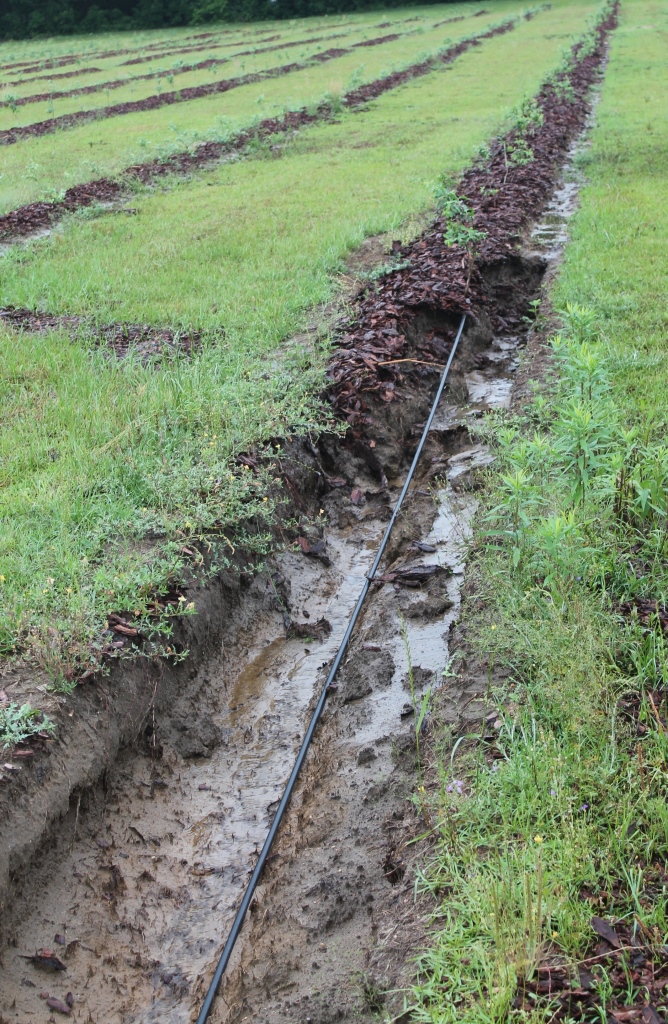Blueberry harvest is less than a month away in the central Panhandle.
Although the Florida Panhandle has been hit with excessive rainfall this spring, blueberry yields are on track to be above average. Colder winter temperatures, coupled with wet spring weather has enhanced the yield potential of properly tended and well established planted blueberries.
Blueberries do best planted in low pH soil, on slightly sloping ground. This prevents the collection of water and resulting root rot in areas with poor drainage. While this situation is ideal for established blueberry plants, this slightly sloping situation can cause issues for newly planted blueberries. Field wash-outs caused by excessive rainfall can wreck newly planted rows, because the pine bark added to the planting trench, being less dense than soil, floats away.
After all this rain, what should growers do to ensure a productive harvest this summer? Keep an eye on plant condition as supplemental fertilizer may be needed. Blueberries generally require low fertilization rates, but if leaves show yellowed edges, red spots, or general yellowing, a fertilizer boost may be needed. Application of a few ounces of ammonium or urea based fertilizer around the root zone of established plants can be beneficial. It is a good idea to look for “Blueberry Special” fertilizer blends.
Fertilization rates for blueberries on a per-acre basis with banded application:
- With 10 foot spacing between rows: 187 pounds per acre of 12-4-8 for 2-3 year old plants, 94 pounds for 1 year plants.
- With 12 foot spacing between rows: 124 pounds per acre of 12-4-8 for 2-3 year old plants, 62 pounds for 1 year plants.
- Reduce fertilizer applications on soils with high organic matter content
- To learn more about commercial blueberry production, consult the blueberry page on the UF IFAS EDIS, Blueberry Fertilization in Soil, and Blueberry Fertilization in Pine Bark Beds
A drier May will help blueberries produce their greatest sweetness, as they develop. Late May and June rains could cause fruit split, so less rain during this period is ideal!
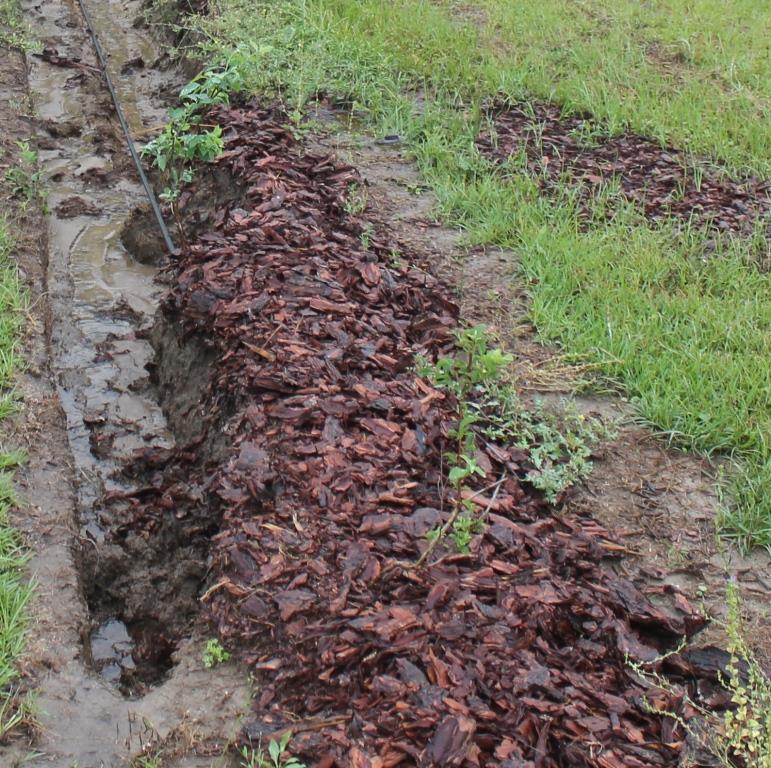
Newly planted blueberries washed out of row. Plants were collected and held in mist beds until rows are able to be repaired. Photo by Matt Orwat
- Steps to Remedy Non-Productive Pecan Orchards - June 30, 2023
- If Not Disease, Then What? Abiotic Vegetable Disorders - June 24, 2022
- Dormant Sprays Protect Fruit Trees from Future Insects and Diseases - January 28, 2022

